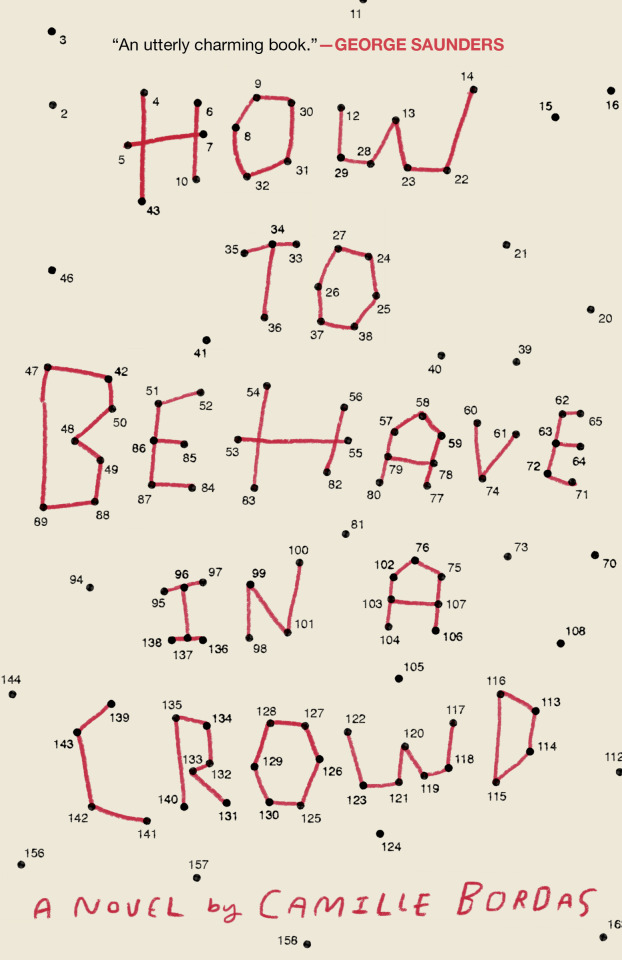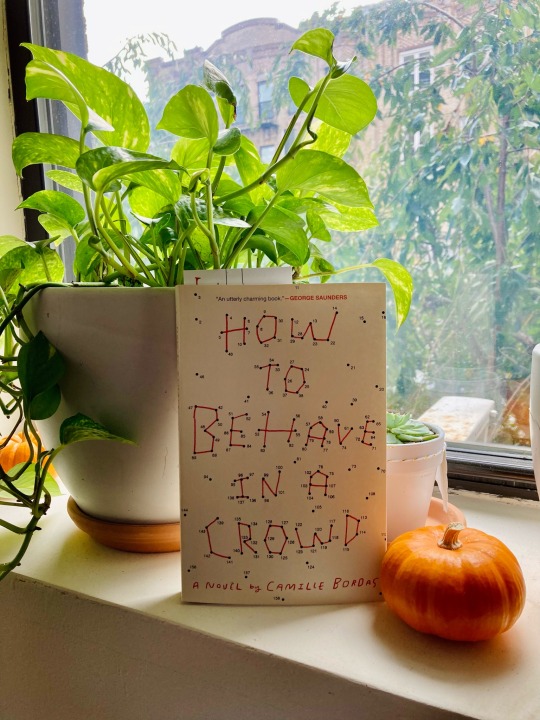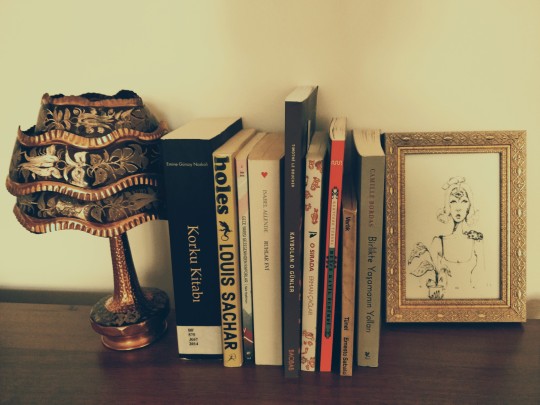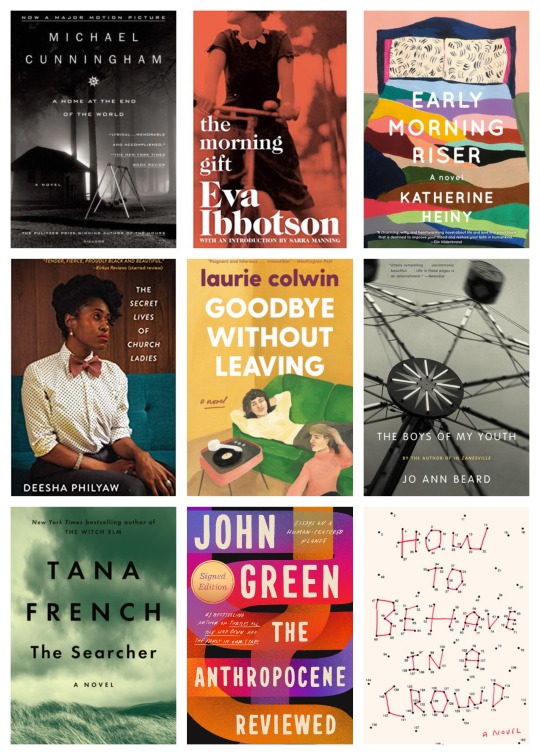#camille bordas
Text

300 pages books that should be 1000 pt 1
#loved it very much....just what i needed tbh#now i'll reread monday or tuesday to keep the good vibes going#good as in absorbing white culture while being critical yet hedonistic and appreciative of narrative#how to behave in a crowd#camille bordas#might post fav quotes later if i feel like editing text#also i would've loved for this to be a beach read but i couldn't possibly bring myself to take electronics to the beach and i only had pdf
0 notes
Text
A Loucura e a Lucidez
Talvez para sermos boas escritoras, pintoras, escultoras, cientistas, tenhamos que transitar pelo fio da navalha, quase despencando pelas suas bordas em direção ao abismo.
Talvez tenha sido esse o fardo que carregaram tantas mulheres que por vários, e não tão diferentes motivos, se equilibraram entre a loucura e a lucidez.
Virginias, Silvias, Camilles, Maries, Fridas, tantas e tão talentosas, sofridas e angustiadas.
Quem sabe a genialidade seja uma exclusividade dos loucos, ou quase loucos...
Mas, afinal, o que é ser louco?
0 notes
Text
2022 in books
this year i got back into reading regularly and i LOVE IT so idk here's a recap of the books i read. there are a few that i started that just weren't for me so i didn't finish them but i found books that did hit just right and made me excited to read again. these are in the order in which i read them:
The Vanishing Half by Britt Bennett
¡Hola Papi!: How to Come Out in a Walmart Parking Lot and Other Life Lessons by Juan Paul Brammer
Belly Up: Stories by Rita Bullwinkle
The Color Purple by Alice Walker
Meaty by Samantha Irby
I'm Glad My Mom Died by Jeanette McCurdy
Tell Me How To Be by Neel Patel
Paradaís by Fernanda Melchor
How to Behave in a Crowd by Camille Bordas
Detransition, Baby by Torrey Peters
highlights & standouts
if i had to pick a favorite... i couldn't lol i thoroughly enjoyed all of the books i read this year. i think standouts though were Detransition Baby and The Vanishing Half for me; interestingly enough, they are both slice of life stories that go back and forth from past to present between various characters. i won't spoil much but tagging it just in case.
The Vanishing Half follows two Black twin sisters who have split up and led entirely different lives, one as a Black woman and the other as a white one. the story explores colorism, identity, assimilation, and survival as it relates to each twin, and eventually their children. it's a beautifully written story with so many takeaways, but i think the one i keep coming back to is that – while we all can only do what we feel we need to in order to survive, being able to carve out a life in which we can safely live authentically is the most freeing.
Detransition, Baby walks us through an impending shared parenthood through the perspectives of three people – a trans woman, a cis woman, and a former trans woman who has since detransitioned. i loved that the premise and themes interwoven throughout the book are less-than-often-discussed topics even among parts of the queer community, but they're real and important nonetheless. and each character is written so thoughtfully; though each has their flaws and frustrations, they are written with such empathy and nuance that i found myself wanting the best for all of them. but the premise presented does not have a simple solution.
i also have to single out the chapter My Mother, My Daughter in Meaty because it completely wrecked me. i'd read Irby's work before but i still felt completely blindsided by this. the way she so simply, elegantly, and painfully writes about this trauma of caretaking her disabled mother under the crushing weight of poverty and childhood will stay with me. "My mother became my daughter when I was nine years old."
currently reading
You Are Here (*For Now) by Adam J. Kurtz
i gifted this to myself with the intention of starting it in the new year but i couldn't help but start it now lol. i'm glad i did because it's so timely and perfect for the winter blues.
it may not be a lot of books but it's way more than i've read in a long time and i feel really good about that :) here's to reading more words and stories that make us feel things in 2023
recommend more stuff to read pls!
#originally just meant to list the books and got slightly carried away#i like to read yall#txting#book review#book recs#reading list#queer lit#lgbtqia books#reading#booklr#fiction#slice of life#2022 books#i'm glad my mom died jennette mccurdy#you are here for now#detransition baby#samantha irby
1 note
·
View note
Text

I’m 50 pages in and loving it. For fans of The Royal Tenenbaums.☺️
#books#booklr#reading#am reading#Camille Bordas#How to Behave in a Crowd#decorative gourd season#the royal tenenbaums#wes anderson
48 notes
·
View notes
Text

Books of August:
Korku Kitabı, Emine Naskali ed, 2014.
Holes, Louis Sachar, 1998.
Report from Planet Midnight, Nalo Hopkinson, 2012.
La Casa de los Espiritus, Isabel Allende, 1999.
Ces jours qui disparaissent, Timothe Le Boucher, 2017.
O sırada, Erman Çağlar, 2019.
Bence Katil Öldürdü, Kurtcebe Turgul, 2019.
El Túnel, Ernesto Sabato, 1946.
Isidore et les autres, Camillen Bordas, 2017.
Unpopular opinion: Bordas's book How to Behave in a Crowd is another overrated hype.
Final thoughts: This month the number of female writers has been higher. There is one graphic novel by Le Boucher, which is beyond excellent; one dystopia by the Jamaican writer Hopkinson. There are two masterpieces from Latin America, one by Allende and one by Sabato. The Turkish books were ok this month but I'm planning to read better Turkish books in September.
#books of august#books#currently reading#ernesto sabato#el tunel#isabel allende#camille bordas#how to behave in a crowd#nola hopkinson#timothe le boucher#Spotify
5 notes
·
View notes
Text
One thing I didn’t understand was how my mother could’ve read so many novels and still take anything anyone ever said at face value.
Bordas, Camille. “Only Orange”. The New Yorker; December 23rd, 2019.
4 notes
·
View notes
Quote
Boys never believe a girl when she says she never cared. He would think it's pride or something.
Camille Bordas, How To Behave In A Crowd
#camille bordas#how to behave in a crowd#literature#french literature#books#quote#women#girls#boys#man#feminism#pride#nowreading
9 notes
·
View notes
Photo

Birlikte Yaşamanın Yolları - Camille Bordas - How to Behave in a Crowd, Siren Yayınları
3 notes
·
View notes
Text
JOUR 260 - Isidore et les Autres, Camille Bordas // Chronique de Mlle Mel

Chronique originellement paru sur le blog Les Histoires de Mel : merci beaucoup à Mélanie de nous permettre de partager cette chronique coup de coeur sur Lectures de femmes !
Isidore et les autres, c'est un roman psychologique qui dissèque le fonctionnement d'une fratrie, et c'est passionnant. Isidore, c'est le benjamin du groupe, qui arrive après Jérémie, Léonard, Aurore, Bérénice et Simone. Et c'est à travers lui que tout arrive au lecteur, que tout nous. arrive. Si Isidore a 11 ans, et se sent décalé, non seulement par rapport à sa fratrie mais aussi par rapport au monde qui l'entoure, le lecteur découvre un jeune garçon attachant, seul de sa famille à effectuer un parcours scolaire 'classique', sans sauter de classe, mais à l'intelligence émotionnelle acérée et fine. Il est attentif aux autres malgré des fugues répétées, et cherche avant tout à rendre les gens heureux, par opposition à ses frères et soeurs, coincés dans leur bulle intellectuelle.
La langue de Camille Bordas est à la fois simple et riche, complexe' comme ses personnages, mais d'une fluidité douce-amère, comme la soif de réussite, de justice, mais surtout d'amour de cette fratrie.
Une évolution, un chemin, un mûrissement à la fois caustique et poétique, c'est ce qui attend Isidore et les autres, qui d'une certaine façon prennent le lecteur à témoin.
Camille Bordas réussi avec brio à nous plonger dans les affres de l'adulescence, de la quête de soi, à travers le prisme d'une famille presque comme les autres.
« Le prélude était sur le point de s'achever. La lin était facile à reconnaître : les dernières mesures étaient strictement les mêmes que celles qui ouvraient le morceau, le même motif répété, sauf qu'il n'y avait plus la légèreté du début, l'insouciance, vu qu'entre-temps, il y avait eu cette partie-plus sombre, au milieu du morceau, plus dramatique, qui effaçait tout espoir, qui alourdissait et qui ternissait tout. »
Mais n'est-ce pas justement la quête de l'existence, retrouver cette légèreté dans l'entonnoir de la vie ? Demandez à Simone...
Mlle Mel
Découvrez ses autres chroniques sur son blog, Les Histoires de Mel. ©Mélanie Blondel - Tous droits réservés
Isidore et les autres, Camille Bordas. Editions Inculte, 2018.
Camille Bordas est née à Lyon, en 1987. Elle a passé son enfance au Mexique et vit maintenant à Chicago. Elle a fait des études d’histoire de l’art et de photographie. Elle a publié deux romans en français aux éditions Joëlle Losfeld, Les treize desserts en 2009 et Partie commune en 2011. Ses nouvelles en anglais ont paru dans le New Yorker. Isidore et les autres, son troisième roman, originellement écrit en anglais, a déjà été publié en sept langues et dans dix pays.
#roman#famille#fratrie#camille bordas#littérature#littérature contemporaine#fiction#adolescence#adulescence#enfance#émotion#frères#soeurs#écriture#365 day project#conseil de lecture#chronique#autrice#livres de femmes#mlle mel
2 notes
·
View notes
Video
instagram
#dog#books#how to behave in a crowd#Camille Bordas#beautiful animals#lawrence osborne#the hearts invisible furies#john boyne#hogarth books#instagram
2 notes
·
View notes
Text
My Favorite Books of 2021

Each one of these books had me crying in the club*.
*the laundromat, the coffee shop, the airplane, Prospect Park, my living room
#books#best of#2021#reading#am reading#favorite books#happy new year#end of 2021#booklr#how to behave in a crowd#camille bordas#the anthropocene reviewed#john green#the searcher#tana french#the boys of my youth#jo ann beard#goodbye without leaving#laurie colwin#the secret lives of church ladies#deesha philyaw#early morning riser#katherine heiny#the morning gift#eva ibbotson#a home at the end of the world#michael cunningham#nyc
6 notes
·
View notes
Text
Recent Reading
Neil Gaiman - Coraline [graphic novel]
It’s been a while between my reading this book and writing this annotation, but I remember thinking this was my favourite version of this story, ahead of the novel and the animated film. I can’t remember the specifics, but I feel like I thought some of plot elements and characterisations were fleshed out more effectively in this adaptation. I love the line about how “The sky had never seemed so sky, the world had never seemed so world.” There’s actually a similar line towards the end of American Gods...
Neil Gaiman - American Gods
I started reading this one while travelling, which felt very surreal; despite it’s seemingly anachronistic title, this is a novel that captures the feeling of being propelled into the future. Simultaneously, this is also a story about the lingering presence of the past. They way these two ideas are synthesised together feels true - it’s a story about survival. I don’t know how else to describe it, but I keep thinking about it, and I treasure the book for this reason.
Neil Gaiman - The Graveyard Book
This one is more of a children’s book -- perhaps similarly as scary as The Hobbit? It’s been a while since I read The Hobbit. Nonetheless, I particularly enjoyed the personification of death as The Lady on the Grey -- my own childhood would likely have been less terrifying if I had bee introduced to more ways of thinking about death as a compassionate character.
Mary Shelley - Frankenstein; or, the Modern Prometheus
This was the first literary novel that I ever read, back in middle school. I fell in love with the language -- and the darkness too, probably. Since I’ll likely be teaching with this novel next year, I wanted to revisit the world of Viktor Frankenstein and his creation. However, as I was pressed for time, I listened to an abridged audiobook, narrated by Kenneth Branagh. And it was great! I think the first-person, epistolary nature of the novel translates tremendously well into an oral context. I wish I could say the same for Branagh’s film adaptation, although Deniro as the monster is compelling. Anyway, I was particularly moved by the reoccurring idea of friendship in the novel, which was something I hadn’t noticed before. There is something so lonely and lovely about writing letters.
Camille Bordas - How to Behave in a Crowd
Like many others, I struggle to find the time to enjoy the short fiction published in The New Yorker. To be honest, I struggle to even find the time to listen to the podcast versions. However, one of the short stories that I have actually read -- and since listened to again and again -- is The State of Nature by Camille Bordas. I find her writing to be both immensely humorous and sobering, and How to Behave in a Crowd delivers in both respects. She’s often been compared to Salinger, although her work seems to possess much more of a sociological, rather than spiritual, emphasis; she’s referenced Garfinkel and Goffman’s studies as influences, whose work I look forward to exploring. It’s been a while since I studied French, but I’m considering brushing up on my comprehension to try reading her as-yet-untranslated earlier novels, too; I am very excited to read more from Bordas. She has two other short stories published in The New Yorker, although I haven’t read the most recent one yet.
Min Jin Lee - Pachinko
Read this one for a book club, but didn’t get to finish it in time. Subsequently, I was made aware of the major plot (in the loosest sense of the word) developments before finishing it myself. I still found it to be a moving story about family, identity, and assimilation, and appreciated the opportunity to learn about the experiences of Koreans in Japan -- albeit through a fictionalised perspective. I honestly don’t have such to say about this one, other than to say that the prose is easy to read (backhanded compliment?) and I wanted to be more affected by the ending (perhaps my heart is cold and withered, although I did find other points of the story appropriately devastating). Speaking of accessibility and endings...
George R. R. Martin - Fire and Blood
I promised myself I wouldn’t read this. Five novels about Westeros was enough, I reasoned; there are other worlds to explore, including the one I actually live in. But then Season 8 of Game of Thrones happened. It wrapped up with all this talk of ‘breaking the wheel’ and I needed context. What was the wheel, exactly? Why, specifically, would characters in that world believe it needs to be broken? Just how unprecedented are the events depicted in the finale? So I turned to Fire and Blood for answers. I’m not sure if I found them -- or that Martin necessarily did as he was writing this fictional history of a continent, either -- but it proved to be surprisingly accessible and enjoyable bedtime reading. Someone please stop me if I ever express interest in reading The Silmarillion, though.
Louis Theroux - The Call of the Weird: Travels in American Subcultures
Another audio book! I basically just wanted to listen to someone with a mellifluous British accent speak for an extended period of time. Unsurprisingly, the essays are also great -- there’s a few really memorable final lines. However, I was uncomfortable with the way that Theroux caricatured the speech of his interview subjects. It seemed condescending and demeaning at times, a far cry from his usually humanist and compassionate approach. Weird indeed.
A. O. Scott - Better Living Through Criticism
Heckling isn’t something I’ve ever imagined myself doing, but I almost shouted at a comedian after reading this book. The guy was dragging everyone through this extended bit about reviewers and criticism that was reductionist and seemed misinformed. “But Ronny,” I wanted to offer, “good criticism is art!” It’s like when you believe broccoli tastes gross, but you’ve just never tasted a nice, fresh bunch, you know? Anyway, because I’m a not total idiot, I didn’t say anything -- which comedian has that bit about their doctor asking for a joke, and wanting to say that they will tell this story on stage and this will be the joke? Is this similar, even a little? Not really, I guess. I’m really grateful for this book.
Nick Hornby - Fever Pitch
I am trying my hardest to understand why people like sport. This book has been helpful. It’s very episodical, which can make for a choppy reading experience, but there’s enough genuine insight -- less about sport, and more about being an obsessive person, and just living in general -- to keep me turning the pages. It’s certainly a quieter way to research than sitting in a stadium.
#Reading#Lists#Neil Gaiman#Nick Hornby#George R R Martin#Min Jin Lee#Camille Bordas#Mary Shelley#Louis Theroux
0 notes
Text
a list of classical music that gives me chills
i personally love classical music that you feel so deep in your soul that it makes you feel like sobbing, so i've decided to include a list of all of the pieces that make me feel that way
1. Symphony No. 5 in C-Sharp Minor: IV. Adagietto. Sehr Langsam - Gustav Mahler, 1902 (wiener philharmoniker)
2. November - Max Ritcher, 2002 (konzerthausorchester berlin)
3. Act 3: LII Juliet's Death - Sergei Prokofiev, 1935 (oslo philharmonic orchestra)
4. Valse Sentimentale, Op. 51, No. 6 - Pyotr Ilyich Tchaikovsky, 1877 (london festival orchestra)
5. Elegy No. 1 in D Major - Giovanni Bottesini (joel quarrington)
6. Piano Quartet in E Flat Major, Op. 47: III. Andante cantabile - Robert Schumann, 1842 (andré previn)
7. Vocalise No. 14, Op. 34 - Sergei Rachmaninoff, 1912 (mstislav rostrophovich)
8. Symphony No. 5 in D Minor, Op. 47: III. Largo - Dmitri Shostakovich, 1937 (new york philharmonic)
9. Cello Sonata in G Minor, Op. 65: III. Largo - Frédéric Chopin, 1846 (emmanuelle bertrand)
10. Symphony No. 4 in G Major: III. Ruhevoll (Pogo adagio) - Gustav Mahler, 1901 (cleavland orchestra) (yes, mahler wrote two symphonies within two years. he was a fucking compositional genius.)
11. Le Carnaval Des Animaux: XIII. Le Cygne - Camille Saint-Saëns, 1886 (arranged by hazell) (han-na chang on cello, philharmonia orchestra)
12. String Quartet No. 1 in C Minor, Op. 9: II. Adagio - Max Bruch, 1858 (diogenes quartet)
13. Nocturne Op. 9 No. 2 - Frédéric Chopin, 1830-1832 (olga bordas)
14. Cello Sonata in G Minor, Op. 19: I. Lento-Allegro Moderato and III. Andante - Sergei Rachmaninoff, 1901 (leonard elschenbroich)
15. Variations on a Theme, Op. 36 "Enigma": IX. Nimrod (Adagio) - Edward Elgar, 1898-1899 (london symphony orchestra)
#majority of these are from the romantic era#but those are the best ones <3#i couldn't find the actual release date for bottesini's elegy#but he was alive from 1821-1889#so still romantic era#but yeah!!#i love all of these pieces so much and i cry during most of them#very good 'crying on the floor' pieces#would highly recommend every single one of these#romantic era#classical music#orchestra#orchestra music#orchestral music#classical#schumann#chopin#edward elgar#rachmaninoff#rachmaninov#prokofiev#saint saens#mahler#shostakovich
43 notes
·
View notes
Quote
Why don't you go find yourself a book and sit here with me instead?
Camille Bordas, How To Behave In A Crowd
#camille bordas#how to behave in a crowd#literature#french literature#bibliophile#reading#books#words#literary journal#excerpts#literaryexcerpt#workshop#reading workshop
4 notes
·
View notes
